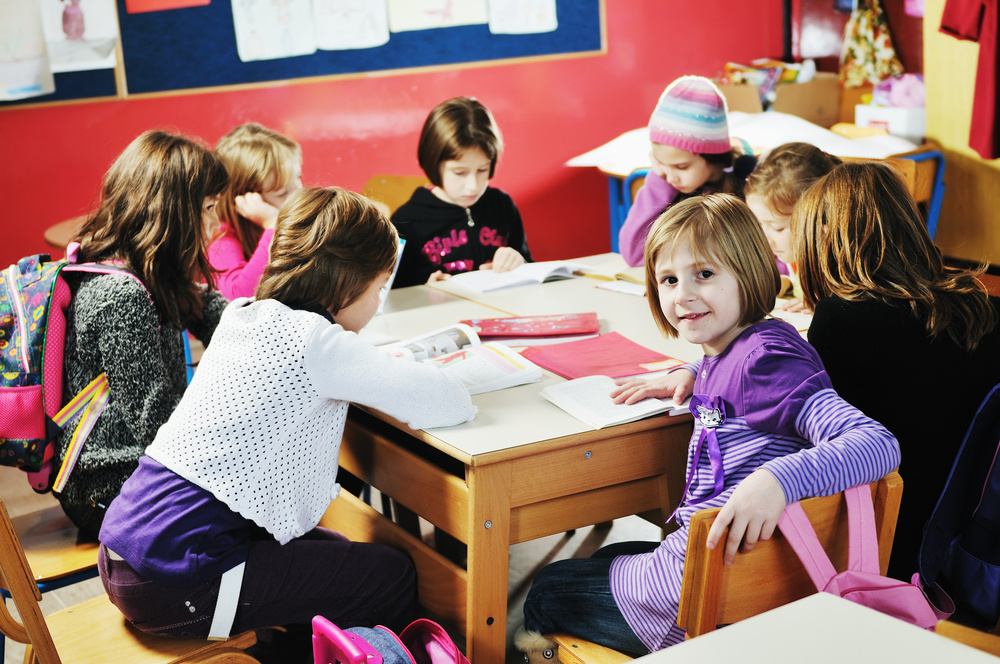KnowAtom’s interactive science curriculum is designed to help students strengthen teamwork, collaboration and group communication skills through authentic instruction, hands-on lab work, and student-centered STEM investigations. As a result, teachers who use the Next Generation Science Standards (NGSS)-based curriculum report improved collaboration among their students, as they work together in teams to investigate, question, and explain core theories. One researcher from Northeastern University, Dr. Tracy L. Waters, evaluated KnowAtom implementation in fourth and fifth grade science classrooms and identified diverse examples of increased collaboration amongst students throughout the year.
Students learn how to speak publicly, agree and disagree respectfully with peers, and question ideas

During Waters’ evaluation, one teacher shared the importance of starting the school year with a lesson in how to work together as a team, including ways to help a teammate who is struggling. In hands-on phenomena-based lessons, students also learned collaboration and thinking skills, they used these skills throughout the lesson and during group discussions using the Socratic method. During one study participant’s Socratic seminars, half of the students sat at a round table in the middle, with the rest in chairs around them. The students inside the circle led the discussion, with those on the outside taking notes, actively listening, and asking questions. Learning how to speak publicly, agree and disagree respectfully with peers, and question the speakers were skills learned early in the year and strengthened during each session when they were used as tools for developing and using content they were learning.
Creating space for student agency results in student growth and maturity
Another teacher using the KnowAtom science curriculum noted that giving students the freedom to choose their lab team, as well as the opportunity to change teams throughout the school year, helped encourage a supportive culture in the classroom. She encouraged teams that were struggling on an assignment to partner with another team for help. The teacher reported, “I think that has been one of the most exciting things- seeing the growth and maturity of kids to be able to say, ‘We shouldn’t work together. We did not do well.’” Allowing students to change their team structures helped strengthen core teamwork and collaboration skills, as students learned who they worked best with and what the consequences of working on different teams was.
Sharing responsibility for learning with students gives students choice and results in more time-on-task
Introducing students to how to develop their own hands-on, inquiry-based experiments connected to real-world phenomena also positively impacted teachers’ daily work. One teacher shared that giving students more responsibility over their own learning process allowed her more time to move around the classroom, assist struggling teams, and work one-on-one with students. With more freedom of choice in the learning processes, students were kept on task with a timeline for starting and finishing each lab, and check-ins built in throughout.
Requiring consensus among team members lead to accelerated learning of NGSS science standards
Using KnowAtom’s NGSS-based curriculum, students take the lead on how to conduct their own investigations into core science subjects. But each team uses a similar process framework. One teacher reported to Waters’ researchers that ensuring each member of a team had to come to consensus before moving to the next phase in their investigation, helped motivate students within teams to work together and accelerated learning. The students quickly learned that they succeeded only if the whole team worked collaboratively to finish each phase of their investigation.
Download a free sample of KnowAtom’s curriculum designed for the NGSS.
View free online professional development for elementary and middle school teachers.

